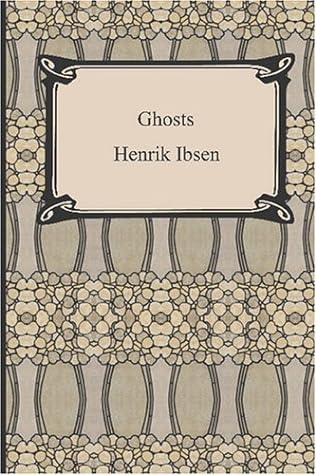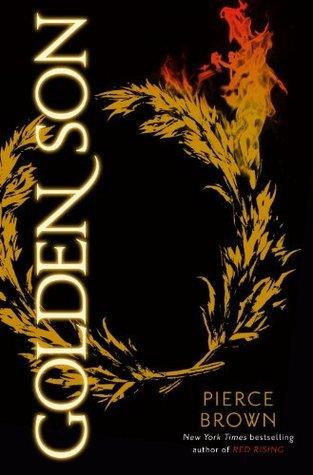Ghosts by Henrik Ibsen Book Summary
Discover the haunting world of Henrik Ibsen's "Ghosts" with our comprehensive book summary, key insights, and in-depth review. Uncover the themes, characters, and moral dilemmas that make this classic a must-read. Dive into the complexities of human nature and societal expectations today!
Ghosts Book Summary
Henrik Ibsen's controversial masterpiece "Ghosts" explores the devastating consequences of moral hypocrisy and societal expectations in 19th-century Norway. This groundbreaking play follows Mrs. Alving as she confronts the haunting legacy of her deceased husband's sins, which continue to plague her family through inherited disease and moral corruption. Ibsen's bold examination of taboo subjects like venereal disease, incest, and religious dogma shocked Victorian audiences but established him as a pioneer of modern drama. The play's unflinching portrayal of how past mistakes echo through generations remains powerfully relevant, offering profound insights into family dysfunction, social conformity, and the price of living a lie.
Discover detailed insights, reviews, and a comprehensive summary in The Son of Neptune Book Summary, Review & Key Insights to deepen your understanding and appreciation of this thrilling adventure.
Ghosts by Henrik Ibsen - Introduction
You know what totally caught me off guard in Ghosts by Henrik Ibsen? How it unpacks the idea that the past isn’t just behind us—it actually haunts our present in ways we don’t expect. I mean, I always thought “ghosts” in stories were just spooky or supernatural, but here, they’re more like the invisible weight of secrets and societal expectations. It made me rethink how much our own family histories and unspoken truths shape who we are, even when we try to move on.
I picked up this play initially because I needed something short—just 48 pages—and I figured a classic Scandinavian drama would be a neat change from my usual fiction. Plus, it’s one of those plays that’s often read for school, so I thought, why not get ahead of the curve? The reading time is pretty manageable, around an hour, but the impact lingers way longer.
If you’re someone who loves digging into psychological drama or enjoys plays that challenge social norms, this is definitely for you. It’s perfect if you appreciate classics but want something that feels surprisingly modern in its themes. Also, if you’ve ever felt stuck by family expectations or wondered about the invisible “ghosts” in your own life, I think you’ll find this really hits home.
Honestly, I wasn’t expecting such a punch in such a short read. Give it a shot—you might find yourself looking at your own past a little differently.
What is Ghosts About?

"Ghosts" by Henrik Ibsen explores the destructive impact of hidden truths and societal expectations on family dynamics, centering around a mother's struggle to shield her son from the consequences of his father's past. The main message highlights the importance of confronting reality rather than succumbing to societal norms and hypocrisy. Key concepts include the theme of inherited guilt, the critique of moral hypocrisy in society, and the examination of the constraints placed on women, ultimately revealing how unaddressed issues can haunt individuals and families across generations.
About Book Author - Henrik Ibsen
Our Next Voice
It's a privilege to welcome someone whose journey I've followed with great interest. Henrik Ibsen didn't start out intending to dismantle societal facades, but his early experiences with financial strain and the rigid expectations of his community certainly lit a fire. This drive is so powerfully channeled into Ghosts, a work that, much like A Doll's House, confronts the uncomfortable truths and inherited consequences many preferred to ignore. What's interesting about Henrik Ibsen, and something I've always found fascinating, is his meticulous, almost ritualistic approach to his writing desk – a small altar where he summoned such profound human drama.
- He possessed this incredible ability to see beyond the polite veneer, to understand the hidden currents of emotion and the moral compromises people make.
- Having personally navigated and critiqued the societal pressures of his era, as seen in An Enemy of the People, he was uniquely positioned to write Ghosts. He understood, perhaps better than anyone, the haunting power of unspoken family legacies and the destructive nature of secrets.
More Books To Find
Ghosts - Book Overview
It's about a family's dark secrets and the consequences of living in denial. The main character, Helene Alving, is trying to break free from the ghosts of her past—her late husband’s infidelities and their impact on her son, Oswald. It’s like peeling back layers of an onion; each layer reveals more pain and truth, and you realize how deeply these hidden issues can affect people.
Ibsen wrote it to challenge societal norms and to provoke thought about moral hypocrisy. At the time, discussing topics like infidelity and mental illness was taboo, so he used this play to shine a light on the darker aspects of human nature and the consequences of repression.
What sets it apart from other works on family drama is its raw honesty. Instead of just focusing on the emotional fallout, it dives into the psychological effects of living with lies. It’s like a psychological thriller but without the typical suspense; the tension builds from the characters’ internal struggles rather than external action.
One specific moment that stuck with me is when Oswald reveals his illness and his desire for his mother to help him die. It’s heart-wrenching and encapsulates the play's themes of duty, love, and the haunting nature of the past. It makes you think about what it means to truly be free from your “ghosts.”
Key Insights of Ghosts
Thematic Exploration: "Ghosts" delves into the impact of societal norms and moral hypocrisy. Ibsen critiques the constraints placed on individuals by society, particularly regarding issues of sexuality, inheritance, and family reputation.
Character Dynamics: The relationship between Helene Alving and her deceased husband reveals the destructive power of secrets. Helene's struggle against her past and her husband's hidden vices underscores the theme of truth versus illusion.
Symbolism of the Orphanage: The orphanage, a central setting, symbolizes the cycle of suffering and the consequences of past actions. It serves as a reminder of the characters' attempts to escape their legacies, only to find themselves trapped by them.
Generational Conflict: The clash between Helene and her son Oswald illustrates the tension between tradition and modernity. Oswald’s desire to break free from his family's past reflects a universal struggle for identity and self-determination.
Moral Responsibility: The play questions the concept of moral responsibility. Helene's decision to reveal the truth about her husband's life and its effects on Oswald raises profound ethical dilemmas about the extent to which individuals should be held accountable for their actions and the repercussions on future generations.
These insights highlight Ibsen's mastery in addressing complex social issues through personal narratives, making "Ghosts" a timeless exploration of human experience.
Who Should Read This Book
"Ghosts" by Henrik Ibsen is essential reading for those interested in exploring complex themes of morality, societal expectations, and the impact of the past on the present. Ideal for students of literature, psychology, and sociology, this play delves into the human condition and the consequences of secrets and lies. It appeals to readers who appreciate thought-provoking narratives that challenge conventional beliefs and provoke discussion. Additionally, theater enthusiasts and fans of classic drama will find Ibsen's masterful character development and poignant dialogue captivating, making it a timeless work that resonates with contemporary issues.
Read If You Are
- Interested in exploring complex family dynamics and moral dilemmas.
- A fan of classic literature that critiques societal norms and conventions.
- Seeking to understand themes of guilt, secrecy, and the consequences of past actions.
Skip If You Are
- Looking for light, feel-good entertainment
- Uncomfortable with intense family drama and moral dilemmas
- Expecting a fast-paced, action-packed story
Important Takeaways from this Book
-
Reflect on Your Values: Take 10 minutes today to write down your core values. Understanding what truly matters to you helps clarify your decisions and actions, leading to a more authentic life. Consider what aspects of your life feel misaligned with these values.
-
Have an Honest Conversation: Reach out to a family member or close friend and schedule a time to discuss any unresolved issues. Open communication fosters deeper relationships and can lead to healing. Be prepared to listen as much as you speak; this requires emotional readiness.
-
Set Boundaries: Identify one area in your life where you feel overwhelmed, and establish a clear boundary today. This could mean saying no to an obligation or limiting time with a draining person. Setting boundaries protects your mental health and allows you to focus on what truly matters.
-
Embrace Vulnerability: Share a personal story or struggle with someone you trust. This action cultivates intimacy and builds stronger connections. Consider your comfort level and choose a safe space for this conversation, as vulnerability can be challenging but rewarding.
-
Take Responsibility for Your Actions: Write down one mistake you’ve made recently and outline steps to rectify it. Owning your actions promotes personal growth and builds trust in your relationships. Be honest with yourself about what you can do differently moving forward.
Book Review
I picked up "Ghosts" by Henrik Ibsen expecting a gripping exploration of moral dilemmas and family secrets, and I definitely got that, but it was darker and more unsettling than I anticipated. The play dives deep into the consequences of past actions, particularly surrounding themes of societal expectations and inherited sins, which I found both compelling and haunting.
One of the standout strengths of "Ghosts" is Ibsen's character development. The protagonist, Mrs. Alving, is beautifully fleshed out, and her internal struggle is palpable. The dialogue is sharp and poignant, particularly in her exchanges with Oswald, which really highlight the generational conflict and the weight of family legacy. Ibsen's writing style is direct yet poetic, making the heavy themes accessible without feeling overly dense.
However, the pacing felt uneven at times. The first act dragged a bit as it set up the premise, and I found myself longing for the intensity of the later acts. While I appreciate the build-up, I think a tighter first act could have hooked me even more effectively.
In comparison to other plays I've read, like "A Doll's House," I found "Ghosts" to be more somber and less focused on individual empowerment. It tackles societal issues but does so in a way that feels more fatalistic.
Overall, I think "Ghosts" is a powerful read for anyone interested in the darker aspects of human nature and societal critique. However, if you're looking for something light or uplifting, you might want to skip this one. It's a thought-provoking piece that lingers long after the final curtain.
Final Thoughts
If I'm being honest, finishing Ghosts by Henrik Ibsen left me with a heavy sense of reflection. The play dives deep into themes of morality and the consequences of our choices, which makes it both fascinating and unsettling. I’d definitely recommend this if you're into thought-provoking literature that challenges societal norms and personal beliefs. However, skip this one if you're looking for something light-hearted or straightforward; it’s definitely not a casual read.
The thing that surprised me most was the rawness of the characters’ struggles and how their pasts haunt them, much like the title suggests. I can see this resonating particularly well with those interested in psychology or moral philosophy, but I wouldn’t recommend it to someone seeking a traditional, happy ending.
Months from now, I think the idea of legacy and how our actions affect future generations will stick with me the most. As for rereading it, I’d prefer the full book over a summary; there’s so much depth in Ibsen’s writing that a summary just wouldn’t do it justice.
Overall, my reading experience was intense but rewarding, and it’s definitely a book that will linger in my mind for a while.
Frequently Asked Questions
How long does it take to read Ghosts?
It typically takes about 1 to 2 hours to read "Ghosts" by Henrik Ibsen, depending on your reading speed. With 48 pages, you can expect to engage with the text thoughtfully while grasping its themes and nuances.
What makes "Ghosts" different from other books in this genre?
"Ghosts" stands out for its bold exploration of taboo subjects like sexual morality and societal hypocrisy. Ibsen's unflinching portrayal of family secrets and the consequences of past actions challenges conventional norms, making it a groundbreaking work that delves into psychological depth and social critique unlike others in its genre.
Who is the target audience for Ghosts
The target audience for "Ghosts" by Henrik Ibsen includes readers interested in classic literature, social issues, and psychological drama. It appeals to those exploring themes of morality, family dynamics, and societal constraints, particularly in the context of 19th-century European society.
Are there any criticisms or limitations of Ghosts
Critics often highlight the book's bleak portrayal of societal issues and moral decay. Some argue that its characters lack depth, while others feel the play's heavy themes can be overwhelming. Additionally, its historical context may limit relatability for contemporary audiences.
What is the main theme of Ghosts by Henrik Ibsen
The main theme of "Ghosts" by Henrik Ibsen revolves around the impact of societal norms and inherited sins on individuals. It explores issues such as moral decay, the consequences of past actions, and the struggle for personal freedom against oppressive societal expectations.
Tags:
Ghosts, Ghosts Author, Ghosts Book, Ghosts Book Description, Ghosts Book Rating, Ghosts Book Review, Ghosts by Henrik Ibsen, Ghosts ISBN, Ghosts Short Summary, Henrik Ibsen

Michel Fisher
Michel Fisher is a passionate fiction enthusiast and book blogger who writes about emotional reads, character-driven stories, and contemporary romance authors that captivate hearts and minds.

Ghosts
Book Overview
Description
Ghosts is the story of Helen Alving, a widow who is haunted by the many mistresses of her deceased husband and by her son who has inherited syphilis from his philandering father. Ghosts is a scathing indictment of Victorian society in which Ibsen refutes the notion that if one simply fulfills one's duty rather than following one's desires then a good and noble life will be achieved. Scandalous in its day for its frank discussion of venereal disease and marriage infidelity, Ghosts remains to this day an intense psychological drama and sharp social criticism.Ghosts was written during the autumn of 1881 and was published in December of the same year. It was not performed in the theatre until May 1882, when a Danish touring company produced it in the Aurora Turner Hall in Chicago. Ibsen disliked the translator William Archer's use of the word 'Ghosts' as the play's title, whereas the Norwegian Gengangere would be more accurately translated as The Revenants, which literally means The Ones who Return.
Key Points
Family secrets revealed
Characters
Publisher
Neeland Media
First Publish Date
10/30/81





